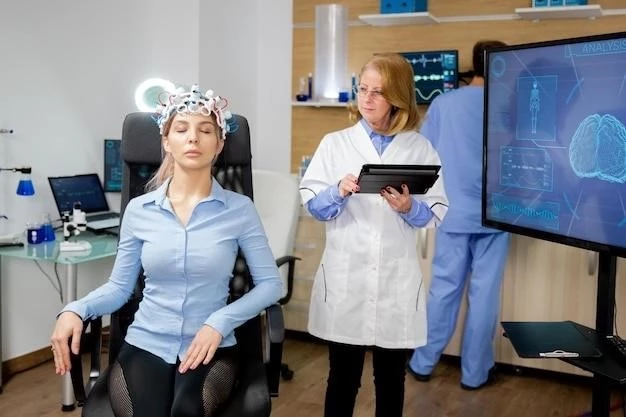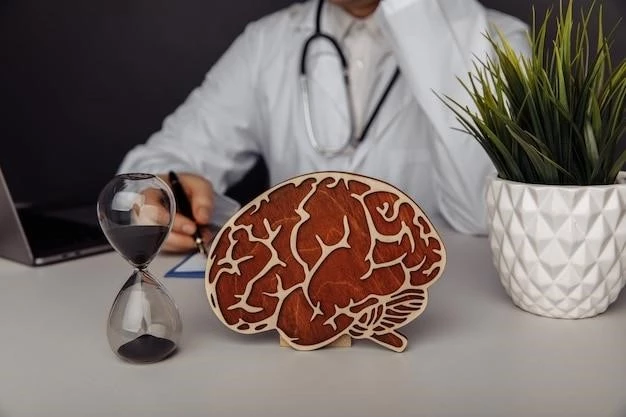Introduction
Neurofibromatosis is a complex disorder affecting nerve cell tissues, leading to the growth of tumors on nerves and impacting various bodily systems․ It is crucial to understand this condition’s implications and potential impact on individuals’ health․
Von Recklinghausen disease, or neurofibromatosis type 1, is a genetic disorder that leads to the growth of tumors on nerves and various parts of the body․ This condition can cause skin changes, bone deformities, and impact multiple systems within the body․ Understanding the implications of this disease is crucial for its management and treatment․
Overview of Von Recklinghausen Disease
Von Recklinghausen disease, also known as neurofibromatosis type 1, is a genetic disorder that leads to the growth of tumors on nerves and various parts of the body․ This condition can cause skin changes, bone deformities, and impact multiple systems within the body․ Understanding the implications of this disease is crucial for its management and treatment․
Genetic Mutations and Neurofibromatosis
Neurofibromatosis is a genetic disorder affecting nerve cell tissues, leading to tumor growth on nerves and various bodily systems․ Von Recklinghausen disease, known as neurofibromatosis type 1, is characterized by mutations in the NF1 gene, causing the development of neurofibromas․ Understanding the genetic aspects of neurofibromatosis is crucial for diagnosis and management․
Skin Changes, Bone Deformities, and Other Symptoms
Von Recklinghausen disease, also referred to as neurofibromatosis type 1, can lead to various symptoms such as skin changes, including café-au-lait spots and freckling, as well as bone deformities and the development of neurofibromas․ Understanding these symptoms is crucial for timely diagnosis and management of the condition․ Consult healthcare professionals for appropriate guidance and treatment options․
Causes and Symptoms
Neurofibromatosis is a genetic disorder impacting nerve cell tissues, leading to tumor growth on nerves and various body systems․ This condition can cause skin changes, bone deformities, and other symptoms․ Understanding these aspects is essential for diagnosis and management․
Diagnosis and Types
Diagnosis of Von Recklinghausen Disease involves understanding the genetic mutations involved, differentiating it from other types of neurofibromatosis, and recognizing the various symptoms that characterize this condition․ Being aware of the specific diagnostic processes and types of neurofibromatosis is crucial for effective management and treatment․ Seeking medical advice and comprehensive evaluations are essential steps in correctly diagnosing and addressing Von Recklinghausen Disease․
Neurofibromatosis Type 1 vs․ Other Types
Neurofibromatosis type 1, also known as von Recklinghausen disease, is distinct from other types of neurofibromatosis such as NF2․ Understanding the specific characteristics and differences between these different types is essential for accurate diagnosis and tailored treatment approaches․ Consulting healthcare professionals for comprehensive evaluations and genetic testing can help differentiate between the various types of neurofibromatosis for personalized management strategies․
Treatment Options
Effective management of Von Recklinghausen Disease involves addressing neurofibromas and associated conditions through specialized treatments tailored to individual needs․ Consult healthcare providers for personalized care plans and optimal outcomes in managing this complex genetic disorder․
Managing Neurofibromas and Associated Conditions
When it comes to managing neurofibromas and associated conditions in Von Recklinghausen Disease, tailored treatment approaches are key․ Working closely with healthcare professionals for personalized care plans and timely interventions can help in effectively addressing the challenges posed by neurofibromas and related symptoms․ Regular monitoring and prompt management strategies can improve the quality of life for individuals affected by this complex genetic disorder․
Living with Von Recklinghausen Disease can have emotional and psychological effects due to its visible symptoms and potential complications․ Seeking support from healthcare providers and joining community organizations can provide valuable resources and assistance in coping with the challenges posed by this condition․
Impact on Quality of Life
The emotional and psychological effects of Von Recklinghausen Disease can significantly impact individuals due to its visible symptoms and potential complications․ Seeking support from healthcare professionals and engaging with community organizations can provide valuable resources in addressing the emotional and psychological challenges associated with the condition, ultimately improving the overall quality of life․
Prevention and Genetic Counseling
Understanding inheritance patterns and genetic mutations is crucial in managing Von Recklinghausen disease․ Genetic counseling can provide valuable insights and guidance on familial implications․ Stay informed and seek professional advice for personalized prevention strategies․
Understanding Inheritance Patterns
Von Recklinghausen Disease, also known as neurofibromatosis type 1٫ exhibits an autosomal dominant pattern of inheritance․ Genetic mutations in the NF1 gene contribute to the development of this condition٫ which can be hereditary or arise from spontaneous mutations․ Awareness of the genetic aspects and inheritance patterns of Von Recklinghausen Disease is essential for genetic counseling and personalized management strategies considering familial implications․

Research and Future Perspectives
Advancements in NF1 research are crucial for better understanding Von Recklinghausen Disease٫ identifying innovative treatment approaches٫ and enhancing quality of life for individuals affected by this condition․ Stay informed about the latest developments in NF1 research for improved management strategies and potential breakthroughs in the future․
Advancements in NF1 Research
Research in the field of NF1 is continuously evolving٫ leading to groundbreaking discoveries that enhance our understanding of Von Recklinghausen Disease․ These advancements pave the way for innovative treatment strategies and offer hope for improved outcomes in the management of this complex genetic disorder․ Keeping abreast of the latest research findings is crucial for individuals affected by NF1 and healthcare professionals involved in their care․

Support and Resources
Community organizations and support groups play a vital role in providing assistance and resources for individuals affected by Von Recklinghausen Disease․ Engaging with these supportive networks can offer valuable information, emotional support, and guidance to navigate the challenges associated with this condition․ Joining these groups can foster a sense of community and empowerment in managing this complex genetic disorder effectively․
Community Organizations and Support Groups
Community organizations and support groups provide valuable assistance, information, and emotional support for individuals and families affected by Von Recklinghausen Disease․ Connecting with these resources can offer a sense of community, shared experiences, and empower individuals to navigate the challenges of living with this condition effectively․ Joining these groups can help in accessing support networks and valuable resources for managing Von Recklinghausen Disease․
